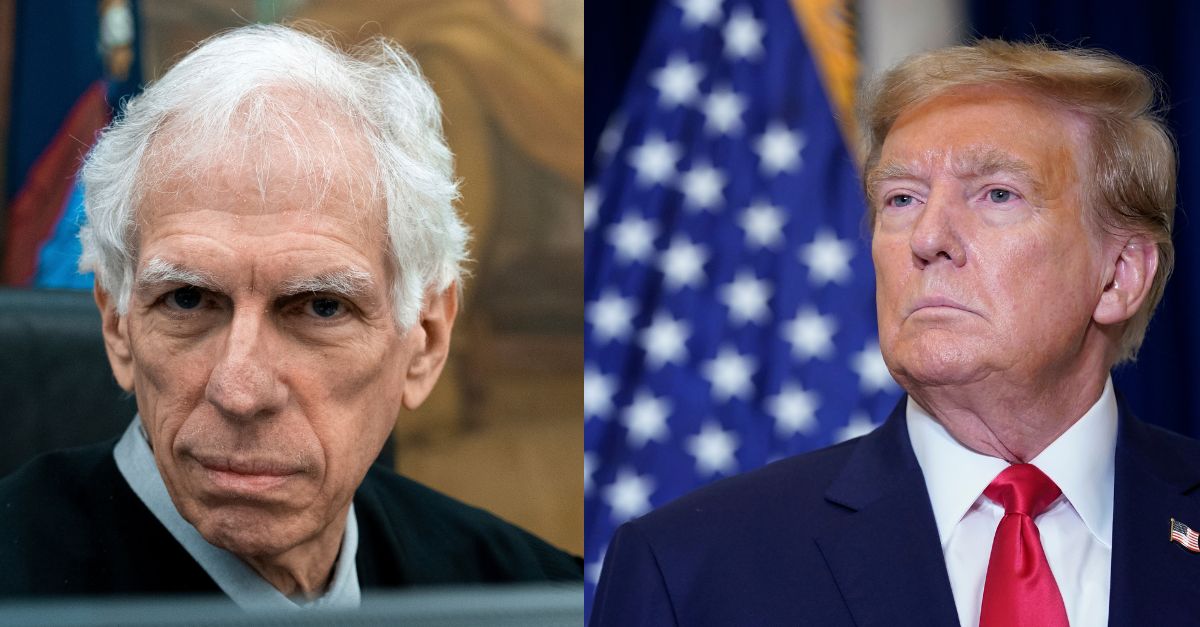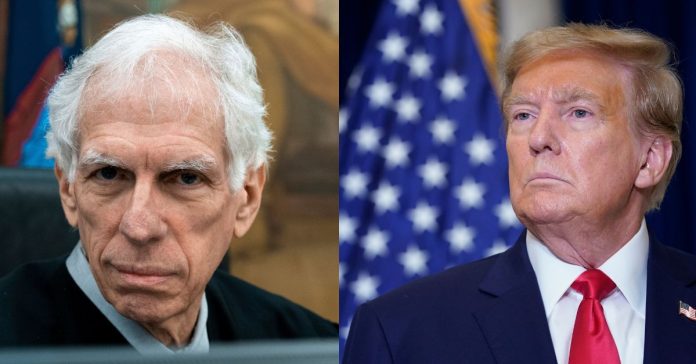
Left: Justice Arthur F. Engoron. (Meir Chaimowitz/NurPhoto via AP)/ Right: Former President Donald Trump. (AP Photo/Susan Walsh)
The judge overseeing the Trump Organization civil fraud case quickly shut down a last-ditch effort by former President Donald Trump and his co-defendants to stay the judgment of $364 million in penalties.
“You have failed to explain, much less justify, any basis for a stay,” New York Supreme Court Justice Arthur Engoron wrote in a terse email to the defense attorney representing the Trump family. “I am confident that the Appellate Division will protect your appellate rights.”
On Wednesday, defense attorney Clifford S. Robert asked for the court to pause the enforcement of its own judgment in the case and allow the defendants “to submit a proposed counter-judgment.”
By Thursday morning, the answer was a resounding “No.”
The Wednesday request to stay the judgment was largely a procedural sideshow with little material heft, the judge determined.
Chief among the complaints lodged by Trump’s attorney is that the proposed judgment was filed “on motion” of New York Attorney General Letitia James. The day prior, the AG filed a proposed judgment order with the court to solidify the Feb. 16 verdict in which Trump, his two adult sons, Eric Trump and Donald Trump Jr., two other former Trump Organization executives, and various business entities were hit with a blockbuster series of penalties that will severely hamstring the 45th president’s business empire — at least in the Empire State.
Robert raised other issues and requested the opportunity to file their own proposal — and suggested holding a conference on the matter.
But James’ proposed judgment order was largely pro forma and constructed out of legal boilerplate. Proposed orders are frequently filed by the parties in legal cases as a matter of course.
Engoron, in a Wednesday email to Robert, said he did not see the actual complaint the Trump defendants lodged.
The judge’s Wednesday email reads (emphasis in original):
I have compared the language of the Attorney General’s proposed judgment to the language of my February 16, 2024 Decision and Order, and the former exactly tracks the latter (except for the addition of defendants’ addresses and blanks for interest amounts).
Please let me know, by 5pm today, if you object in any specific ways, and how your counter-judgment would differ. Given the foregoing, I see no need for a motion or conference on this.
Some more back-and-forth via email ensued. A representative for the attorney general’s office also replied, apparently within the same email chain, to note a small correction of a date for when interest should begin to accrue on former Trump Organization CFO Allen Weisselberg‘s penalties — which the court accepted.
In another Thursday morning email, Engoron criticized the Trump family attorney yet again — explaining his decision was based on the defense’s alleged failure to argue anything of legal merit.
The judge’s Thursday email reads (emphasis in original):
You have again asked for time to file a proposed counter-judgment again without explaining in what way the Attorney General’s proposed judgment is incorrect (except as dealt with above) and again without specifying how your proposed judgment would differ. The proposed judgment accurately reflects the spirit and letter of the February 16 Decision and Order.
Accordingly, I intend to sign the proposed judgment this morning and to send it to the Clerk for further processing.
In the long-running and far-reaching fraud case, several defendants — including numerous Trump-affiliated companies — were found liable on multiple counts on summary judgment in September 2023.
A bench trial — that is, a trial without a jury — on the extent of liability was held between October and December 2023. Earlier this month, New York Supreme Court Justice Arthur Engoron arrived at a penalty just shy of the $370 million the state had asked for in January.
The email chain is available below:
Have a tip we should know? [email protected]

